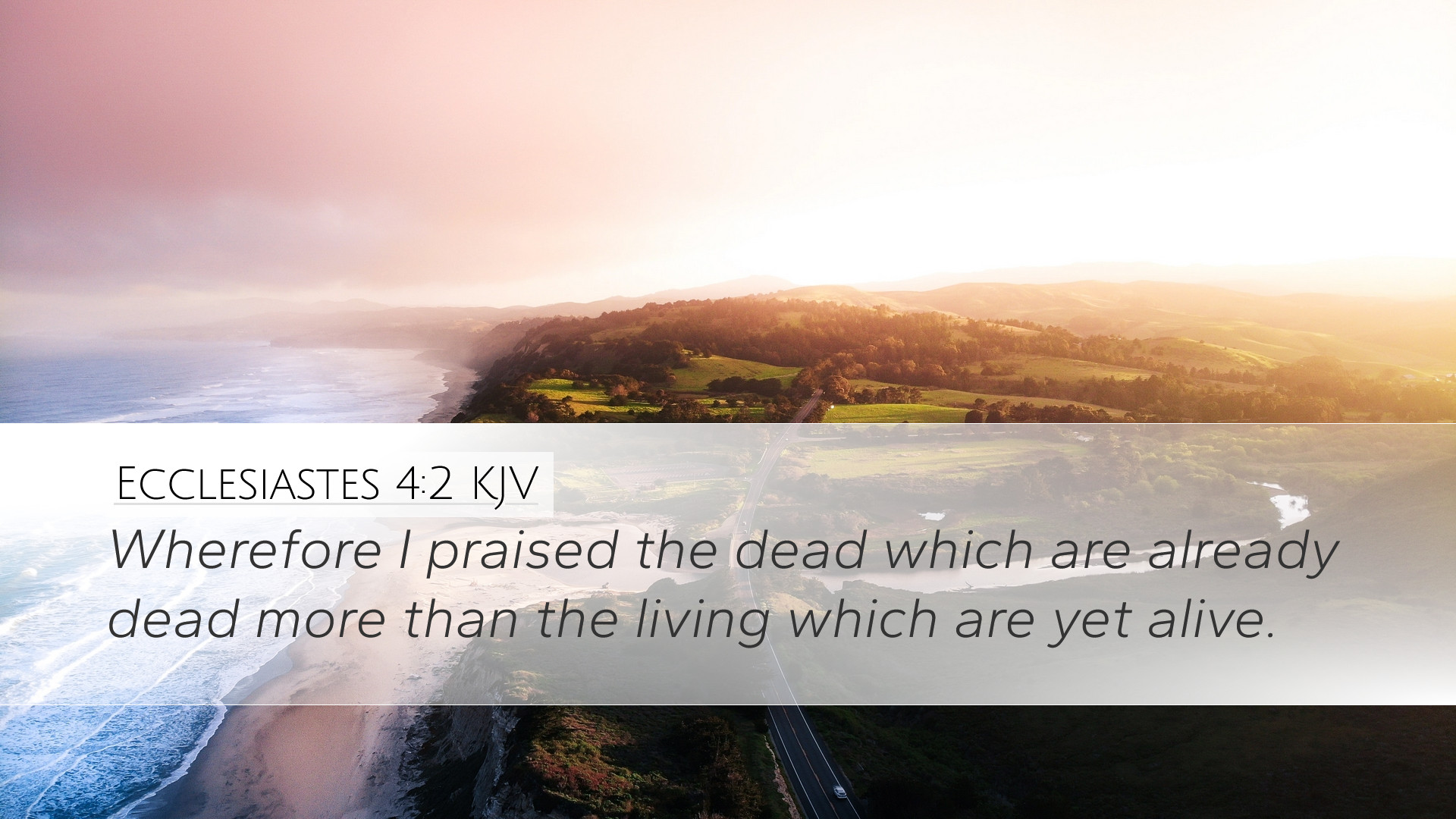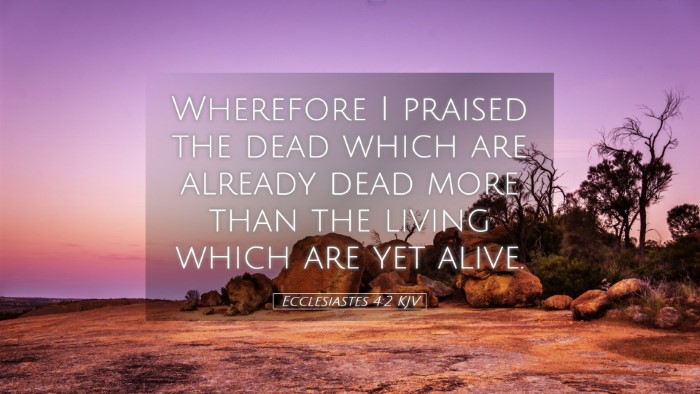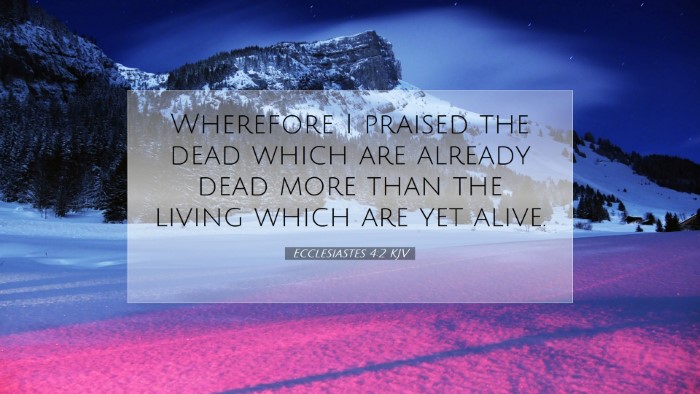Old Testament
Genesis Exodus Leviticus Numbers Deuteronomy Joshua Judges Ruth 1 Samuel 2 Samuel 1 Kings 2 Kings 1 Chronicles 2 Chronicles Ezra Nehemiah Esther Job Psalms Proverbs Ecclesiastes Song of Solomon Isaiah Jeremiah Lamentations Ezekiel Daniel Hosea Joel Amos Obadiah Jonah Micah Nahum Habakkuk Zephaniah Haggai Zechariah MalachiEcclesiastes 4:2
Ecclesiastes 4:2 KJV
Wherefore I praised the dead which are already dead more than the living which are yet alive.
Ecclesiastes 4:2 Bible Commentary
Ecclesiastes 4:2 Commentary
Verse Reference: Ecclesiastes 4:2 - "Wherefore I praised the dead which are already dead more than the living which are yet alive."
The exploration of this verse leads us into deep reflections on the nature of life, death, and the fleeting experiences of human existence. Different biblical commentators provide valuable insights into its meaning and application.
Contextual Overview
In the book of Ecclesiastes, the Preacher (often identified as Solomon) wrestles with the apparent futility of life under the sun. He observes the struggles and injustices that plague human existence and contemplates death as the ultimate equalizer. In this verse, Solomon expresses a profound lament regarding life and death.
Commentary Insights
Matthew Henry's Commentary
Matthew Henry offers a reflection on the value of death in contrast to the trials of the living. He argues that, while it may appear grim, there is a wisdom in recognizing that those who have passed no longer face the tribulations and injustices of life. Henry states:
- “The dead are at rest, free from the sorrows that plague the living.”
- “In this life, we often face oppression, disappointment, and despair, leading one to conclude that it is better to be dead than to endure such hardships.”
Henry underscores that this perspective encourages a theological understanding of hope beyond the grave, reminding readers that while life is filled with vanity, death can serve as a release from suffering.
Albert Barnes' Commentary
Albert Barnes further elaborates on Solomon’s assertion by emphasizing the nature of existence. He states that the living still have the potential for future joy, but the dead are freed from the struggles of life:
- “The living have their joys and sorrows, but they are continually subject to the vanity of life.”
- “In comparing the dead with the living, Solomon reveals the harsh realities that govern life.”
Barnes notes how this verse communicates the deep sadness that often accompanies human experience and the existential questions that arise from it. He argues that while life is a gift, it is often overshadowed by the pain and toil it entails.
Adam Clarke's Commentary
Adam Clarke provides a more philosophical approach to the verse, noting the resignation evident within the text. He portrays Solomon's perspective as a form of existential acknowledgment:
- “The Preacher sees the lifeless tranquility of the dead as preferable to the turbulent life of the living.”
- “This acknowledgment is not a glorification of death, but rather a critique of the continuous suffering experienced by the living.”
Clarke underscores the themes of futility and the search for meaning that dominate Ecclesiastes. His commentary suggests that such reflections are essential for understanding the purpose of life in light of mortality.
Theological Implications
This verse raises profound theological questions about existence, purpose, and the human condition. For pastors and theologians, it serves as a crucial reminder of the fragility of life and the necessity of grappling with mortality. Some key implications include:
- Death and Human Suffering: The verse highlights the reality of human suffering and encourages theologians to address these issues in pastoral care.
- Hope Beyond Death: The realization that death offers peace serves as a platform for discussing the hope of resurrection and eternal life through Christ.
- The Value of Life: The commentaries challenge readers to find value and meaning in life despite its challenges, steering them towards a faith that transcends circumstances.
Conclusion
Ecclesiastes 4:2 invites a deep, reflective engagement with the realities of life and death. Through the insights of Matthew Henry, Albert Barnes, and Adam Clarke, we are reminded of the complexities of existence beneath the sun. For those preaching and teaching this text, it is an opportunity to explore the hope found in Christ and the peace that comes with understanding our mortality.


